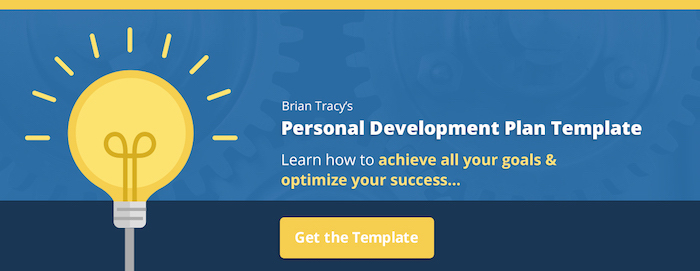How balanced is your life?
Maintaining balance in every part of our lives is an important way to enjoy better health, feel happiness and contentment, and be more successful. But for many people, this idea of “balance” is elusive and vague.
What does having balance in life actually mean?
What does a balanced life look like?
How do you get there?
If you’re asking these questions, I’m sharing my best tips and advice to explain what balance really means.
Plus, I’ll show you how it can help you focus and feel less stressed and what steps you’ll need to take to create the right kind of balance in your life.
What Does It Look Like to Live A Balanced Life?
A well-balanced life can look different for everyone.
At its heart, balance is simply about considering the various parts of your life, how they work together, and how you’d ideally like them to work together for more happiness and less stress.
A balanced life could be a life where you:
- Have time to do things you need to do and things you want to do
- Don’t dread going to work
- Have clear boundaries for when you’re off work and resting
- Spend plenty of quality time with friends and family
- Feel excited to get up and make it through your day
- Take care of your physical and mental health
- Say no to things that won’t build you up
- Have a strong community supporting you
Balance is important because it will cut down any feelings of overwhelm. You’re less likely to get burned out. And you’ll feel less stressed or anxious, and instead will be more content and motivated overall.
Balance affects every area of your life—from your career to your family to your hobbies—and it can significantly improve each of these areas.
5 Benefits of A Balanced Life
There are a lot of benefits to living a balanced life, some may say unexpected benefits. Here they are.
Improved Health
When you achieve a good life balance, your health—both physical and mental—will improve.
Part of living a balanced lifestyle includes taking care of your body with healthy meals and regular exercise. Your commitment to seeking balance in your body will result in a stronger, healthier body that can get you through your days.
Stress management and work-life balance play a big role, too. And your efforts here will also pay off to improve your health.
Studies have shown that employment policies that encourage good work-life balance result in fewer instances of sickness and absenteeism; a happier, less stressed workforce; and improvements in employee mental health and well-being, in addition to other benefits.
Happiness
At its core, finding balance is about finding what makes you happy and supports your needs, goals, and desires in life. So it only makes sense that creating balance in your life will leave you feeling more content.
Contentment is defined as happiness and satisfaction. If your life is filled with habits that support your physical, mental, and emotional health—while helping you succeed in accomplishing the things you need and want to do—that’s a fast track to settling into a feeling of happiness moving forward.
Less Stress
Work-life balance and other intentional lifestyle choices, like spending time with friends and getting regular exercise, support your overall well-being.
It’s hard to feel overwhelmed when you choose to cultivate a life that works for you. Instead of pressure or anxiety, you’ll see a reduction in your stress.
Better Productivity
Many of the habits that help foster a balanced life—such as healthy eating, goal setting, and organization—also boost productivity.
You’ll be able to get more done in less time as you feel good physically and narrow in on the priorities that matter most.
Enjoy Life
Finally, striking balance in your life gives you the freedom to simply sit back and enjoy. Don’t get me wrong, finding balance can actually be a lot of hard work.
But once you reach a better place in life, you’ll be free to let go of your energy and emotions, settling into a feeling of satisfaction and simply enjoying everything your newly balanced life has to offer.
3 Key Goals to Create A Balanced Life
When it comes to creating balance in life, I focus on three key areas of your life that you should focus on.
You want these goals to stay in harmony with each other to help you find balance in life, they shouldn’t be contradictory.
Business, Career, and Financial
Business, career, and financial goals are tangible goals-—your “what”—that you want to accomplish as a result of your hard work. Some examples of these goals might look like:
- Launch a new product or service
- Expand into a new market
- Get a promotion into a leadership or managerial role
- Write and publish a book
- Pay off all of your debt
- Improve your credit score
- Earn a professional certification or get a new degree
- Shift into a new industry
- Earn or save a certain amount of money in a year
These are all great examples of goals that can make a huge impact to find the right balance in your life.
Personal, Family, and Health
Next are personal, family, and health goals. These are the most important goals to create a well-balanced life. I call them your “why” goals.
They’re the reasons why you want to achieve your business, career, and financial goals. Make sure to create space for these personal goals, as they are most important. Achieving your business and financial goals will allow you to achieve your personal goals more easily.
In this area, you might set goals to spend quality time with your family, such as going on a date night with your spouse once a week.
Or, you might follow a healthy diet and get enough physical exercise so your body will function as well as possible. These are positive things to incorporate into your life. It’s worth putting in the effort to get them into your busy schedule.
Personal Development and Professional Growth
The third category is your professional growth and personal development goals, or your “how” goals. They will help you achieve the “what” in order to enjoy the “why.”
Working on yourself might look like learning new skills or getting a better position at work.
Personal development leads to professional growth. Developing your skills and becoming more self-aware will make you a person who is more intelligent, more resilient, and has better interpersonal relationships.
In turn, this will lead you to greater opportunities in your professional life.
My 10 Secrets to Achieving A Balanced Life
The three types of goals listed above are the most important aspect of maintaining balance in your life. But there’s more that goes into creating balance, especially if you’ve never thought about it before.
Here are my 10 secrets that will help you find balance in life.
Seek Harmony
Harmony is similar to balance, yet not quite the same. If your life has harmony and is flowing well, then all parts of your life are in tune with each other.
You’re tuned in to yourself, and this helps you determine the kind of life that’s best for you.
Find harmony by pursuing your passions. Consider what people build you up, and surround yourself with them. I also recommend seeking meaning and purpose in everything you do.
Improve Your Self-Esteem
Self-esteem helps you perform at your best and feel good about yourself. To develop better self-esteem, come up with values and goals that you’re committed to.
Then, track your success along the way. You’ll feel good about yourself as you tick off each milestone.
It’s also important to not compare yourself with others. Simply focus on yourself and your own accomplishments. This will improve your self-esteem.
Determine Your Values
An enormous element of a balanced life is incorporating the values that are most important to you. Of course, you can’t do this unless you know what those values are.
Discover your core values by brainstorming what life principles matter most to you. If you need a starting point, look up a list of different values. For instance:
- Loyalty
- Honesty
- Learning
- Family
- Gratitude
- Creativity
Choose half a dozen and consider them as you move through your life.
Are these values reflected in your day? Do they feel like a good fit for you? If so, focus on exemplifying them even more. If not, go back to the drawing board.
It’s Okay to Be Different
While many of us have similarities, every person is unique. There’s no such thing as a carbon copy of another person. And if you try to imitate somebody else, you won’t be happy. You won’t achieve balance in your life until you embrace your own uniqueness.
Think about what makes you different.
What are your strengths? How about your unique life experiences? And how do you leverage these things for good?
Lean into your differences and open yourself up to how your unique traits improve your life.
Live Happily
My next recommendation is to seek happiness. Your normal, natural, healthy state of being is to experience joy and laughter in most of what you do. But this can sometimes take some intentional work.
My best tip on how to be happy? Look for happiness around you. Make a habit of looking for the good in other people, and the good in any situation you’re experiencing. Even difficulties can bring us happiness in the end.
Figure out what activities make you happiest, and then pursue them. Serving others is another big component of finding happiness.
When you serve others, you contribute to their overall happiness, which can’t help but make you happy as well. You’ll feel a sense of meaning and purpose.
Surround yourself with positive, upbeat people who approach life with joy and excitement. And finally, don’t overlook things like exercise, a healthy diet, and fresh air—which can all naturally boost your mood, too.
Set Goals
Goal setting is one of the biggest keys to living a balanced life. There are two reasons for this. First, you can set goals that relate to the balance you want to have, making you more likely to achieve that balance in life. Second, achieving goals makes you feel satisfied and good about yourself.
I recommend setting goals using the SMART method:
- Specific
- Measurable
- Achievable
- Relevant
- Timely
When your goals adhere to these five “pillars” of goal setting, you are much more likely to actually achieve what you’re trying to achieve. You’ll be focused and motivated as you work toward whatever goal(s) you have set.
Organize and Prioritize Well
Once you know your core values and your biggest goals, it’s time to organize these things into prioritized lists of tasks to get done. This will help you be productive and successful in reaching your goals and carrying out those values.
Remember, balance is also about having time to rest, time to spend with the people you love, and time to do the activities you enjoy. Make sure to structure your schedule with plenty of time allotted for these things.
Be Generous
Being a generous person can add balance to your life as you prioritize giving to others, which will give you a feeling of purpose, satisfaction, and happiness.
Generosity is good for you! People who volunteer or provide support to others have lower blood pressure, reduced stress and depression levels, and live an overall longer life.
Here are a few places to start:
- Donate to a cause you believe in
- Volunteer with a local nonprofit
- Write a thank you note
- Listen to someone who needs to talk
- Give someone a compliment
- Buy flowers or cookies for someone just because
- Donate blood
- Take somebody a meal
Adjust Your Lifestyle
Examine your current lifestyle and don’t be afraid to make the changes that you know will create more balance.
If you want to be healthier, add more whole foods into your diet. If you don’t have a good community of friends, go out of your way to meet new people. If you want to succeed in your career, consider whether you might need more education.
In order to find balance in your life, you will have to make changes to your current lifestyle. There’s no way around it. Be willing to make the changes you need to make.
Identify What Matters
My final recommendation to create balance in your life is to identify what matters most to you so you can create time for it.
What hobbies or activities do you enjoy most? Is it important to you to work in a certain industry? Do you prioritize spending time with friends and family? Maybe you want to have fun, or maybe extra rest is key for you to live your best life.
Whatever the case, you won’t have time for what you love unless you make time for it. Brainstorm what is most important to you. Think about who you love, what you love, and what you enjoy doing. Then, create time in your schedule for those things.
Find Balance
It can take some time to find balance that feels right for you. Once you get there, your lifestyle will still require constant maintenance and adjustments to make sure everything stays in control. But the challenges you might have to overcome to find balance in your life will be 100% worth it.
The first step you’ll need to take is defining the goals and values you want to pursue to help you find balance. If you need a kick start, download my Personal Development Plan Template.
This free resource helps you plan for success more efficiently than ever before. It’s a powerful daily tool that can help you strike the healthy work-life balance you need.
Source: Brian Tracy Success





Leave A Comment
You must be logged in to post a comment.